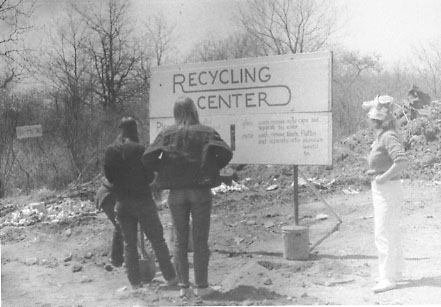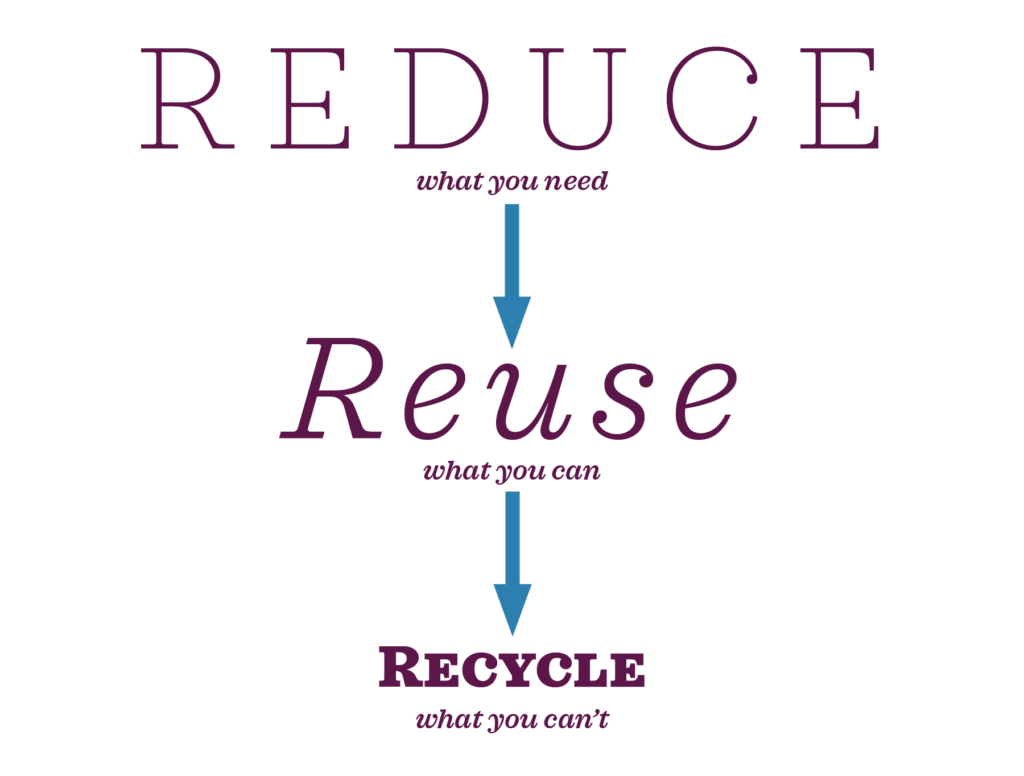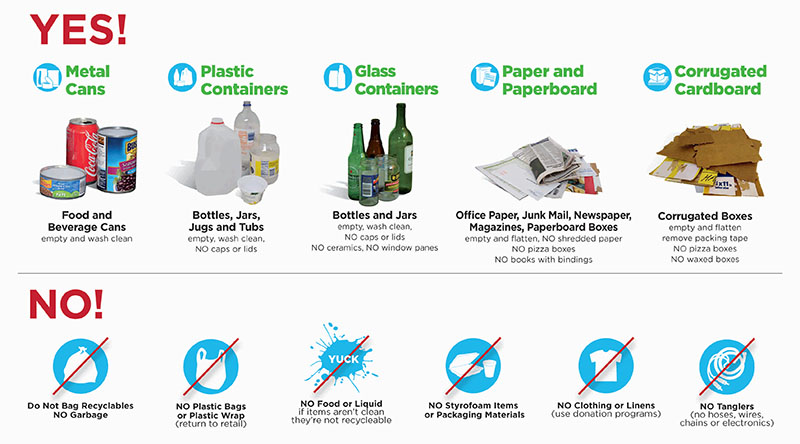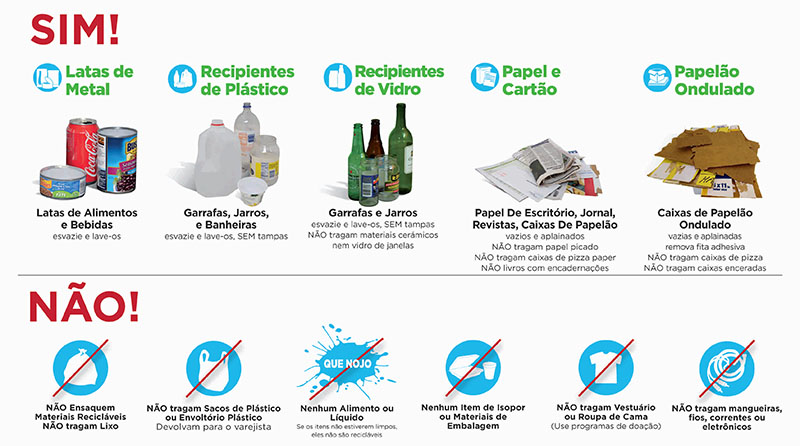Recycling

In April of 1970, in honor of the inaugural Earth Day, VCS launched the first organized recycling effort on Martha’s Vineyard. The goal was to add the capacity for materials recycling at the existing town dumps (actual landfills at that time). The following year, a pilot was created at the West Tisbury landfill. In 1973, the Island’s first fully functional town recycling center was christened in true Vineyard fashion, with local and state luminaries joining local conservationists for a festive formal party. Following that success, VCS would go on to help the other towns follow suit.
Since that time, we’ve worked to help improve the way our Island handles its waste. However, in more recent years, global economic trends and changes within the recycling market have combined to threaten the sustainability of our established solid waste recycling systems.
The recycling industry has worked to adapt to the new market realities, such that the materials the public now expects to be recycled – glass and plastic bottles, metal cans, paper and cardboard – may still be accepted and recycled in a sustainable way. However, doing so has led to new rules for what is accepted, more separation of materials, and higher standards for cleanliness, leading to confusion and frustration on the part of the public.
In short, the days of easy recycling are over. Decades ago, the public was encouraged to recycle as much as possible with abundant single-stream containers and a lax approach to rules enforcement. But now, to avoid contamination that can cause whole truckloads of good recycling to become garbage, a new slogan has taken hold:
When in doubt, throw it out
Confusion. Frustration. Doubt. That’s why VCS has been working with our Island’s waste haulers and transfer station operators to coordinate, to the greatest extent possible, a universal set of standards for recycling across the six towns, and to create new signage and flyers to make the new rules more clear. Please check out the flyer (click here to download the full version) for the most recent coordinated standards. If you have further questions, please contact your local transfer station (MV Refuse District for Aquinnah, Chilmark, Edgartown, and West Tisbury, or Bruno’s for Oak Bluffs and Tisbury) or private pickup company.
Revisiting the “Three Rs”
Today, the familiar symbol of three green arrows forming a tidy closed loop is very misleading. Typically, recycling programs do remain a net benefit to the environment, despite the energy used in hauling and processing, because they still reduce the solid waste that ends up at the landfill or incinerator. (That’s why VCS is working to make our Island’s programs as sustainable as possible.) But the benefit has diminished due to market forces: the increasing costs of recycling pitted against the declining cost of creating virgin plastic, combined with a growing global appetite for disposable goods.
Today, more than ever, to truly fight plastic pollution and curb the greenhouse gas emissions that cause climate change, we must reduce our overall consumption of energy and materials. To the old “Three Rs” embedded in that little green symbol, we must first think “reduce and reuse,” and reorient our understanding of “recycle” to a middle ground: not as waste reduction, but as improved use of waste.



